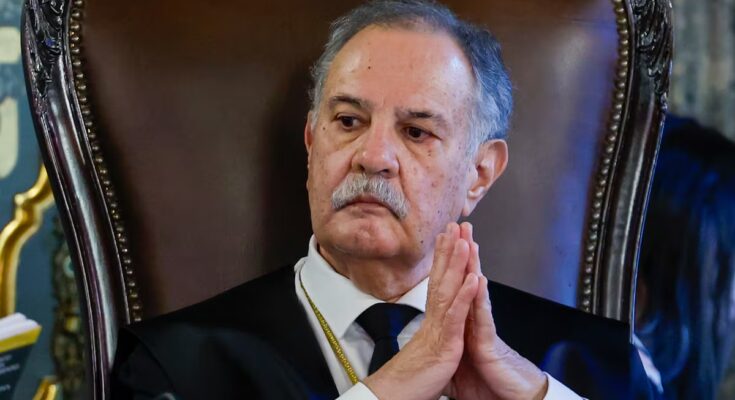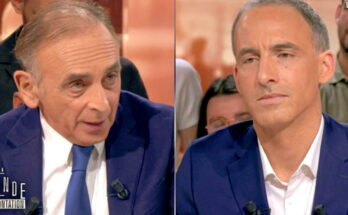The role of journalists is not to be protagonists, but rather witnesses. Find out what’s happening so you can tell it as rigorously as possible. Faced with some so-called journalists who present themselves as main actors of alleged news, the informant’s task requires going unnoticed. Speak as little as possible (what is necessary for the interlocutor to say what he knows) and listen a lot.
However, the recent trial of the state Attorney General was not only unusual because it is the first time the head of such a high institution sits in the dock; also because journalists were under the control of Justice as perhaps never before. Which was predictable, given that it was being clarified whether Álvaro García Ortiz leaked the email in which the commissioner and associate of the president of the Community of Madrid, Alberto González Amador, accused of fraud of 350,000 euros, offered the prosecution a deal to avoid trial in exchange for a guilty plea.
The oral hearing allowed us to witness the embarrassing statement of the head of cabinet of the president of the Community of Madrid, Miguel Ángel Rodríguez, who justified having launched a hoax by claiming to be a journalist and not a notary. It is true that you do not need a degree to practice journalism, but perhaps it would be appropriate to require those who intend to undertake this profession to attend a course in journalistic ethics.
Fortunately, most of the dozen journalists who attended (four of them from EL PAÍS) saved the dignity of the profession. Like José Precedo, who denounced the moral dilemma of the informer who knows the name of the true perpetrator of a crime, but cannot reveal it to save an innocent person because professional secrecy prevents him from doing so. The obligation (not the right) to preserve the identity of sources.
The prosecution lawyers tried to devalue the journalists’ testimony and one of them even went so far as to make it coincide with that of the accused. Nothing could be further from the truth. Unlike the latter, the journalist cannot lie. You can remain silent, but if you declare, you are obliged to tell the truth. Some, in their desire to collaborate with justice, have gone all the way without violating professional secrecy, such as José Manuel Romero, former deputy director of EL PAÍS, who placed his source in the Madrid Prosecutor’s Office. He and other colleagues expressly denied that García Ortiz was the origin of the leak. Forgive me, but if the latter were convicted, he would have to be charged with perjury.
During the investigation, Judge Ángel Hurtado ordered to search the office of the State Attorney General and to clone the contents of his phone and computer, to verify whether he was the one who sent the controversial email – the “disputed document” in legal jargon – to the Cadena SER journalist Miguel Ángel Campos, the first to reproduce some sentences in quotation marks. What he didn’t do was intervene on his cell phone or those of other journalists. In 2022 the Constitutional Court ruled that Palma investigating judge Miguel Florit violated the fundamental rights of journalists whose cell phones and computers he seized to discover the source of their information on a corruption case.
The situation could change if the bill on professional secrecy for journalists, approved at first reading by the Council of Ministers last July, is approved in its current terms. The text specifies that judges and courts “can order the installation of intrusive surveillance software” (spyware) on journalists’ mobile phones, computers and devices only “for investigative purposes” on the more than 30 crimes included in the European arrest warrant; which does not include the revelation of secrets. But let’s add to this list any other that carries a sentence equal to or greater than five years of imprisonment in the Spanish legal system. That is to say, warns a jurist consulted by EL PAÍS, it is sufficient for the judge to decree during the investigation that he is investigating the alleged commission of a serious crime – even if this suspicion later ends up being attenuated – for a journalist to be subjected to “intrusive surveillance”.
It is true that the Government’s proposal transposes European legislation almost to the letter, but, as the General Council of the Judiciary has already warned, it marks a minimum threshold in the protection of professional secrecy which the Executive is not obliged to comply with; even more so if it is lower than that already offered by Spanish legislation, according to the opinion of the governing body of judges.
Finally, a couple of observations. You don’t understand the obsession evident during the process of finding out who leaked the text of González Amador’s email. What protects the duty of secrecy is the content of a document, not its physical support or its literalness, and which had already been revealed, albeit in a tortuous way, by Miguel Ángel Rodríguez. Finally, as a citizen, it is difficult for me to understand why some private crimes are reported without anyone being scandalized and, on the other hand, there is a desire to cover tax fraudsters with a cloak of secrecy. If the Treasury is all of us, as the old slogan said, we have the right to know who tried to rob us, even if they agree not to be judged.



